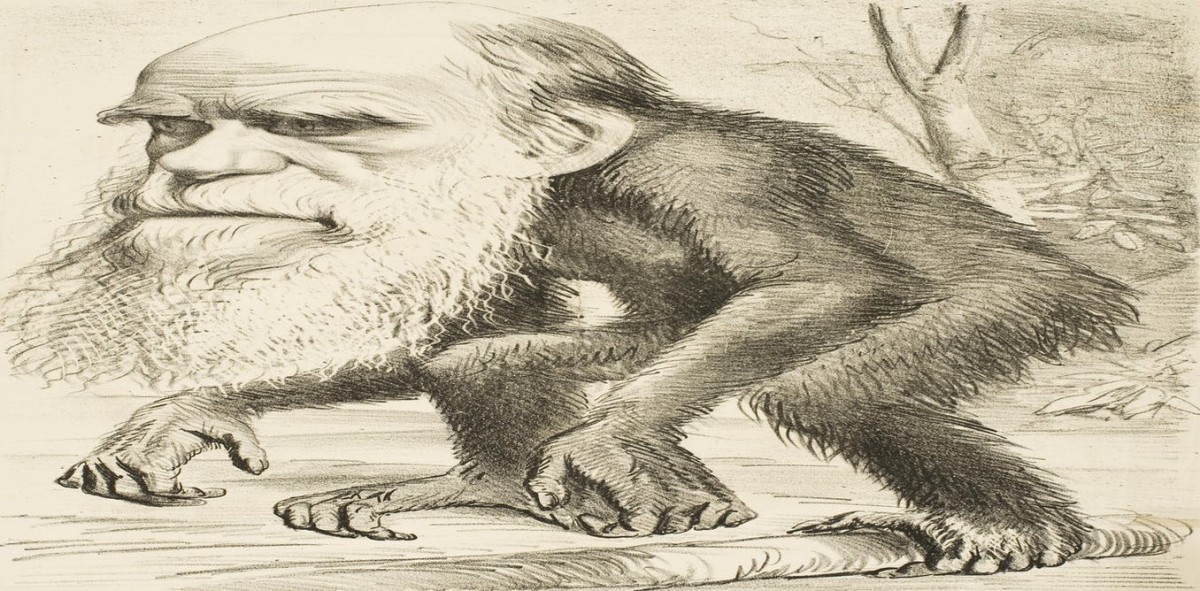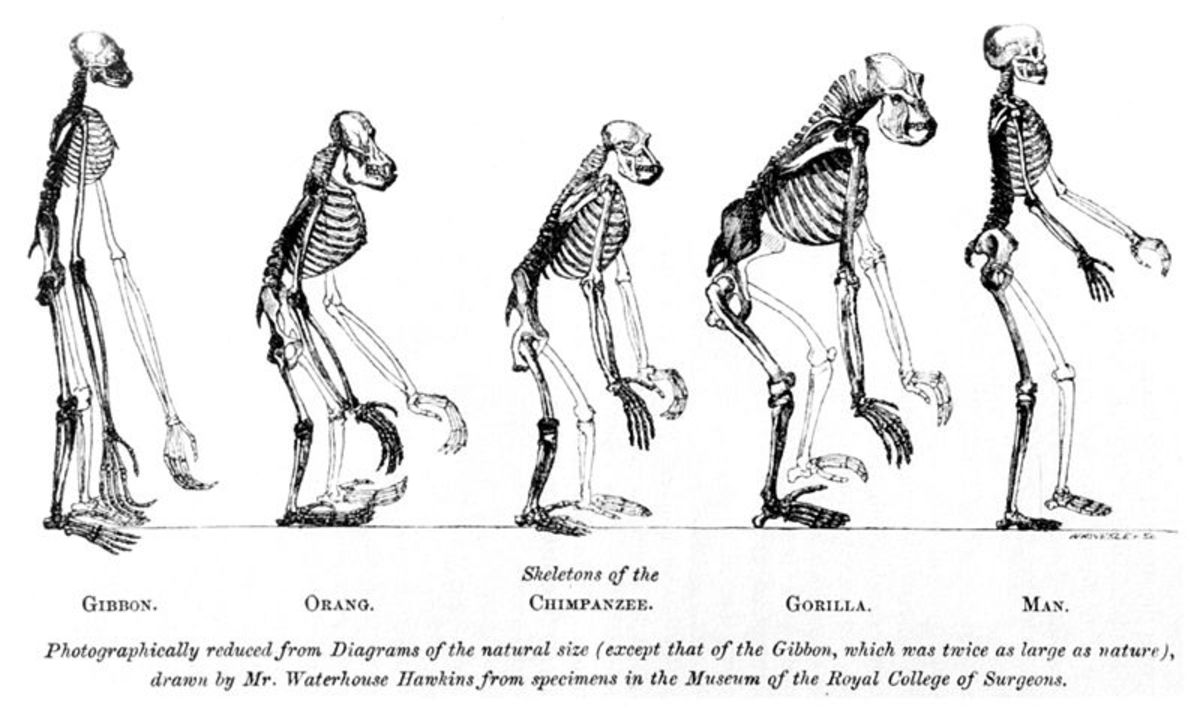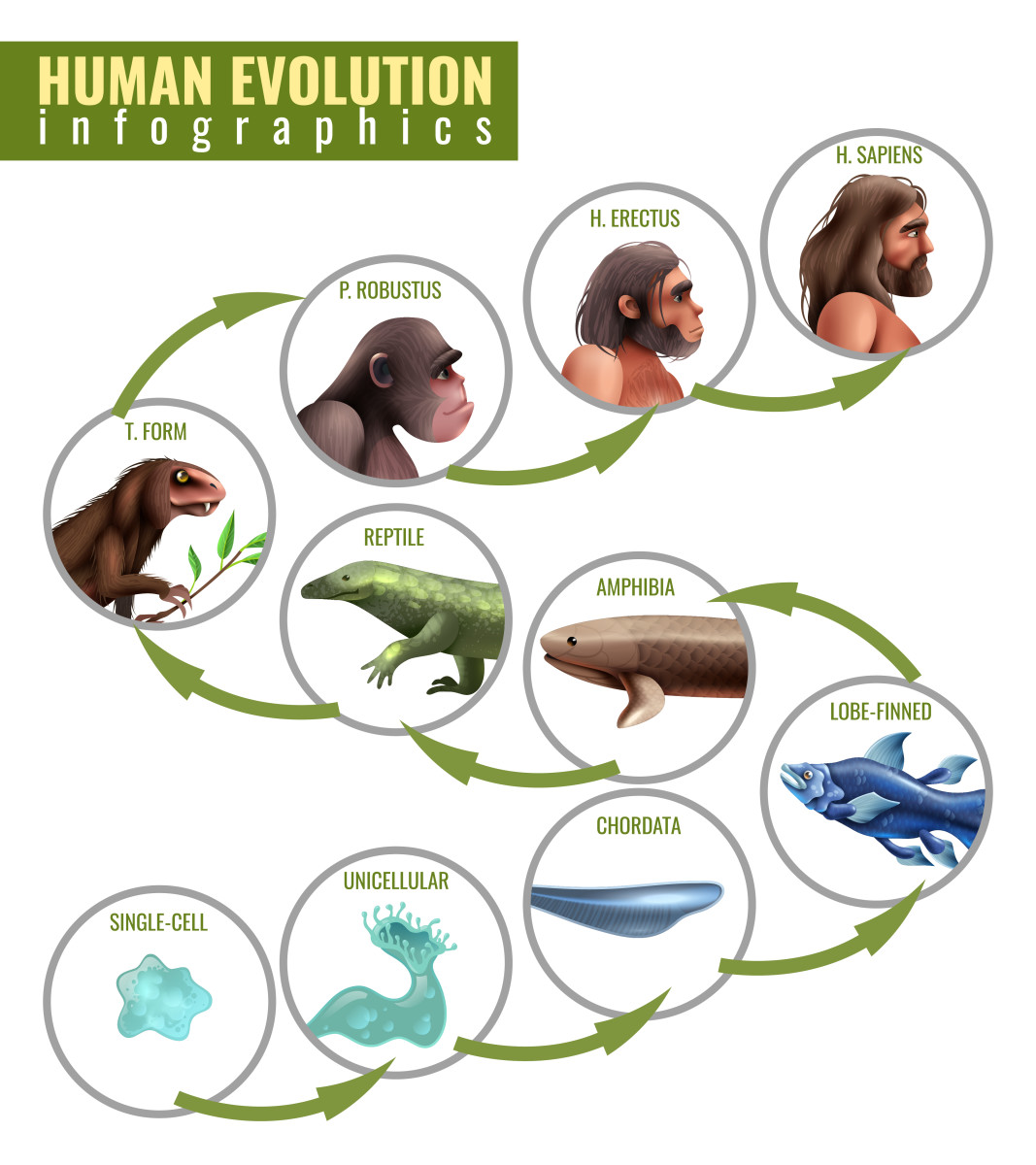Darwinism at its Core- Reaction and Criticism
Early Stages of Speculation
The concept of evolution has generated more attention and controversy than most ideas. It is controversial because it discusses the origin of human beings.
Opinions regarding evolution at the time of Charles Darwin's research were divided. People of faith questioned how one species could evolve into another, while scientists embraced evolution and applied it to their daily lives in accordance to a creative design; other scientists looked at evolution from an objective, secular point of view.
Even though it is difficult to gain a clear sense of how the general public reacted to Darwinian theory, there are ways to discover how people felt about this somewhat radical way of thinking.
In this hub, I will examine the use of print media in England and America to assess the reaction of evolution.
The Media's Effect on Darwin's Research
To gain a better understanding of how people reacted to evolution, it is useful to examine the ways print media assessed the situation. Publications, such as magazines and newspapers, are among the media that provided where the public stood on evolution. Even still, the reader of the article may already have a bias towards the author's intent in one direction or another.
The amount of publications sold at the time may also be an indicator of how well the theory was received by the public. However, "it is difficult to get exact information on the circulation of books, but a rough estimate can be obtained from the number of editions printed" (Ellegard 383).
Besides, people at the time preferred to read periodicals, as opposed to books because a book is geared towards a specific population of people, while periodicals had to appeal to a broader spectrum of readers. While "A book which sold more than a few thousand copies was a bestseller (at the time), popular newspapers reached sales of several hundred thousands" (Ellegard 383). Newspapers were geared toward the public and authors frequently had altered what they really thought of Darwinian theory to appease the reader.
There are instances of periodicals changing their line (on evolution) after taking an unpopular stand (Ellegard 384). Magazines at the time, tended to meld elements of social commentary with elements of fiction. This approach ironically sensationalized a theory based in objectivity. Journals such as The Fortnightly Review published articles regarding Darwin's discoveries named "Animal Intelligence" and "The New Psychology" (Block Jr. 406).
Darwin's British Heritage

Seeing that Charles Darwin was British, another contributing factor to his evolutionary theories would be to examine the British response.
Scientist Thomas Henry Huxley strongly supported Darwinian theory and felt it was necessary to debunk spiritual phenomena, in order to truly discover how earth and its inhabitants came to be. This is stated as "The English nation will not take science from above, so we must get it from below" (Caudill 411).
Huxley and Darwin campaigned throughout England to promote Darwin's research. It is difficult to assess what type of demographic was in attendance at these meetings, however there is an assumption the majority of the people were considered highbrow.
In England at the time, there had been a shift to liberal ways of thinking and people were willing to accept the possibility that the role of God in creation had been an "assumption" and a "conclusion", according to Darwin.
While Darwin had conducted the research, he remained a reclusive man and seldom appeared in public. Huxley, on the other hand, was an extrovert and spoke on behalf of Darwin. The two shared the belief that a career in science must be independent of theology (Caudill 443).
British scientist Thomas Dalton Hooker was also a proponent of Darwinian theory. Although he and Huxley shared the same enthusiasm regarding Darwin's research, Hooker was less abrasive than Huxley. Hooker seemed to handle anti-Darwinians more diplomatically, while Huxley "...in contrast to Hooker was a street brawler when it came to the scientific debates" (Caudill 446).
Anatomist Sir Richard Owen was a vocal opponent of evolution and a personal adversary of Huxley. The majority of Owen's scientific work was dedicated to "showing God's hand in nature" (Caudill 447).
Poll
What Aspect of Darwin's Research Resonates Most With You?
American Reaction to Darwin's Research
At the time Darwinian theory surfaced, there were three dominant scientists in America who each had a varied opinion about the matter- Louis Agassiz, Asa Gray, and James Dwight Dana.
Louis Agassiz was a strong opponent of evolution. Agassiz, a professor of Geology and Zoology at Harvard University, was a deeply spiritual man who believed in the concept of immutability- the idea that it is impossible for one species to morph or evolve into another.
Agassiz saw nature as part of a divine plan and used his religious beliefs as a backdrop to persuade Americans to buy into his scientific theories. Agassiz also believed that the evolution from an egg to adult reenacted the history of the individual species ending in a "predetermined state" (Sanford 534). Evolution rejects this way of thinking because, according to its theory, people "...predetermine their own history through their own variations above and beyond the final development of his ancestors" (Sanford 534). In other words, humans have the ability to adapt to their own environment, as opposed to being in a predetermined existence.
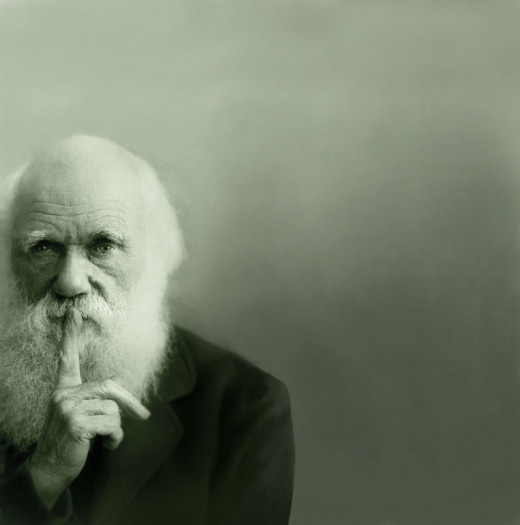
Quick Tips
*The theory of Darwinism originated in England
*Supporters of Darwin's theories were upper class and highly educated
*Opinions regarding his work were divided
*Darwinism leaves religion with the same problems it had before Darwinism was founded
This webpage is an excellent point of departure regarding his work and reaction... http://www.darwinproject.ac.uk
Asa Gray, on the other hand, was the leading advocate of Darwinian theory in America. Gray received his doctorate of medicine at the age of twenty-one. Although he was a theist, he did possess a flexibility of mind, regarding Darwinian theory.
He was also a professional acquaintance of Darwin and the first American to have knowledge of Darwin's research.
He also tried to promote scientific tolerance, as many were quick to dismiss Darwin's controversial theories. Unlike Agassiz, Gray claims that an aspect of evolution named natural selection did not exclude supernatural design from nature. He also made it clear that a spiritual component of evolution must be made to win approval of the church.
Gray also claimed that evolution left religion with the same exact problems before the theory was created. At the the same time, he tried to eradicate the atheistic tendencies attached to the theory. Gray's theories were strategically designed to offset Agassiz's opposition.
Here's a Brief and Charming Overview of Darwin's Research
James Dwight Dana's stance on evolution fell somewhere in the middle between Agassiz's anti-evolution belief and Gray's advocacy. Dana was fascinated with nature and felt the the mysteries of nature are encompassed by a creative, spiritual genius. Dana also believed that "...the introduction of new species were accomplished by divine intervention" (Sanford Jr. 531). He had admiration from both the scientific and religious worlds.
He held a belief in some form of evolution- however, everything from the earth is derived from the creator or God.
One of the main inconsistencies with evolution, according to Dana, was that "...geology had as yet afforded evidence of transitions between species" (Sanford 536).
Dana read Darwin's theories toward the end of his life however, and became less certain of his belief system. He claimed that there are very few occasions of any supernatural intervention. Through a series of lectures towards the end of his life, it became clear that Dana had embraced a majority of Darwin's theories, specifically, natural selection- the idea that stronger, more adaptable creatures survive.
However, Dana had fundamental differences about mutability and there was still no clear evidence to support that creatures on earth can mutate into another form of being. However, Dana also admitted that the close structural similarities between man and the ape are "unquestionable" (Sanford Jr. 538). Ultimately, at the very end of Dana's life, he concluded that there is some form of a divine agency in the universe that explains the origins of life, due in part to the inconsistencies of evidence to prove otherwise.
Dumb People With Smart Phones
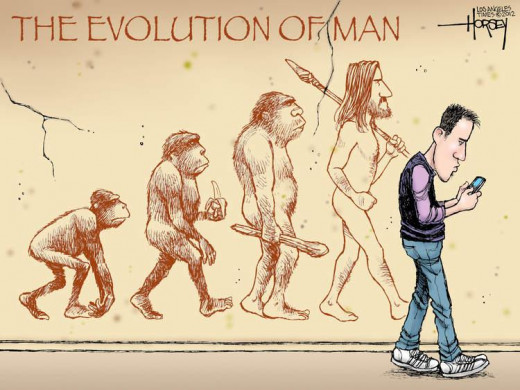
The Final Word
Many people had the idea of natural selection before Darwin formally announced it to the world. Some consider Darwin's work as a "stroke of luck" (Fleming 439). In other words, Darwin was simply confirming through his research what many had already come to believe. Because of this, Darwin's reputation underwent a marked decline between 1880 and 1920 (Fleming 439).
The "Pro-Darwin" advocates breakdown essentially into two main categories. The majority of the people are intellectually advanced and see this theory as scientifically accurate. In their opinion, the accomplishments Darwin made should be regarded as law.
Other supporters of Darwin believe in his theories, but still claim that there is a supernatural element in creation that cannot be ignored.
Those who were against his ideas stem from theological backgrounds and the thought of a species evolving into something else is impossible and absurd.
Ultimately, the public reaction to evolution and Darwinian theory is greatly fragmented. There is no real indicator what non-scientists and the general public felt about Darwin and his work.
The lack of real evidence regarding who actually read and studied his work when it was published is a reason why it it difficult to know.
Works Cited
Caudill, Edward. "The Bishop-Eaters: The Publicity Campaign for Darwin and on the Origin of Species". Journal of the History of Ideas, Vol 55, No 3 (July 1994) 442-460
Ellegard, Alvar. "Public Opinion and the Press: Reactions to Darwinism". Journal of the History of Ideas, Vol. 19 No 3(June 1958) 379-387
Block Jr., Edward. "Evolutionist Psychology and Aesthetics: The Cornhill Magazine 1875-1880". Journal of the History of Ideas, Vol. 45, No 3 (July-September 1994), 465-475
Fleming, Donald. "The Centenary of the Origin of Species" Journal of the History of Ideas, Vol. 20 No 3 (June-September, 1959) 437-446
Sanford Jr., William F. "Dana and Darwinism" Journal of the History of Ideas, Vol. 26, No. 4 (October-December, 1965) 531-546



